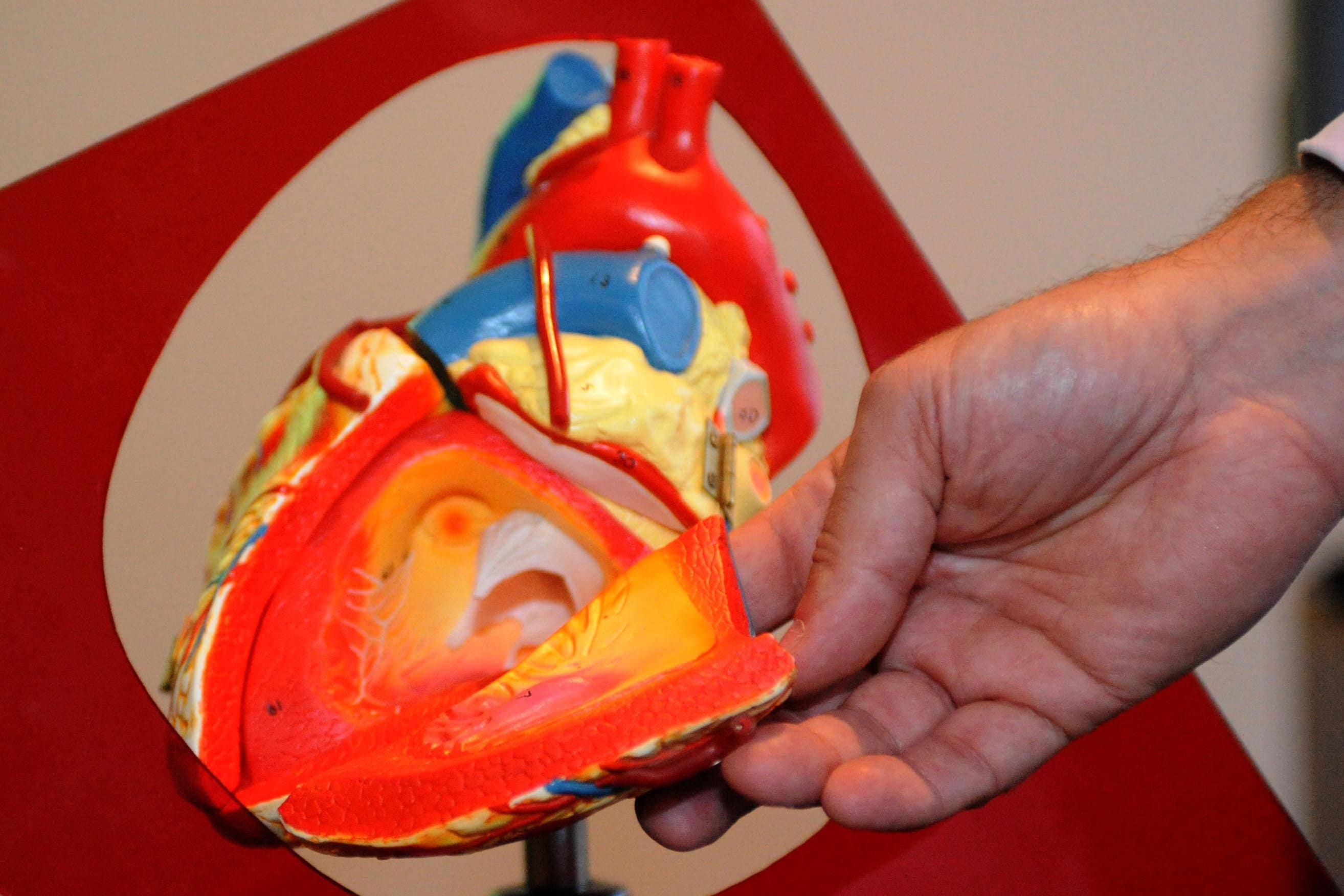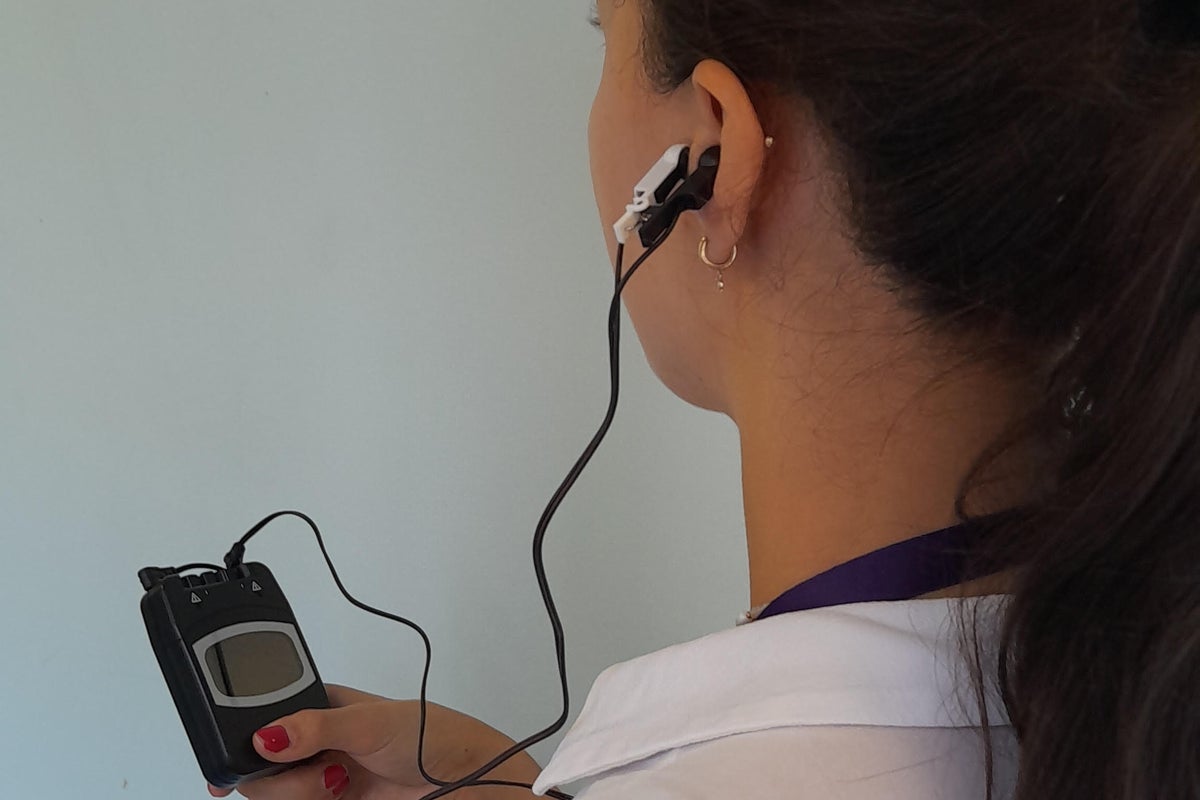A small device that zaps a major nerve connecting the heart and brain could help improve fitness, an early trial suggests.
The device, clipped to the outer ear, sends gentle electrical pulses to increase the activity of the vagus nerve, which plays a key role in regulating heart function.
Wearing the stimulator for just 30 minutes a day increased oxygen intake during exercise, according to researchers, who hope it could one day be used to help people who are not very active.
The study, led by researchers at University College London and Queen Mary University of London, involved 28 healthy volunteers.
Half were given the nerve stimulator to wear for 30 minutes every day for a week, while the other half were given a dummy device.
Following a two-week break, the groups swapped devices.
All of those taking part in the trial had an exercise test at the beginning and end of the week they wore the stimulator.
The trial, published in the European Heart Journal, found those wearing the nerve stimulator were able to exercise more intensely than when wearing the dummy device.
After a week, the stimulator increased oxygen intake during exercise by 4 per cent.

It also boosted maximum breathing rate by an average of four breaths per minute, and maximum heart rate by four beats per minute during exercise.
Gareth Ackland, a professor of perioperative medicine at Queen Mary University of London School of Medicine, said: “Maintaining physical activity is essential for every aspect of cardiovascular, emotional, and cognitive health.
“The outcome of the trial is consistent with the significant body of evidence pointing to an important role of the brain in optimising exercise performance and regulating the activity of the immune system, helped by the vagus nerve”.
Blood samples were also take from five people, with researchers suggesting wearing the nerve stimulator for a week helped reduce inflammation.
Prof Ackland added: “We will need to carry out larger trials to confirm our findings, but the results of this study in healthy volunteers suggest that increasing vagus nerve activity can improve fitness and reduce inflammation, potentially offering new approaches to improve heart health.”
Professor Bryan Williams, chief scientific and medical officer at the British Heart Foundation, which funded the study, said: “This early study suggests that a simple technology, which harnesses the connection between the heart and the brain, can lead to improvements in fitness and exercise tolerance.
“While more research is needed involving people with cardiovascular disease, this could one day be used as a tool to improve wellbeing and quality of life for people with heart failure.”




